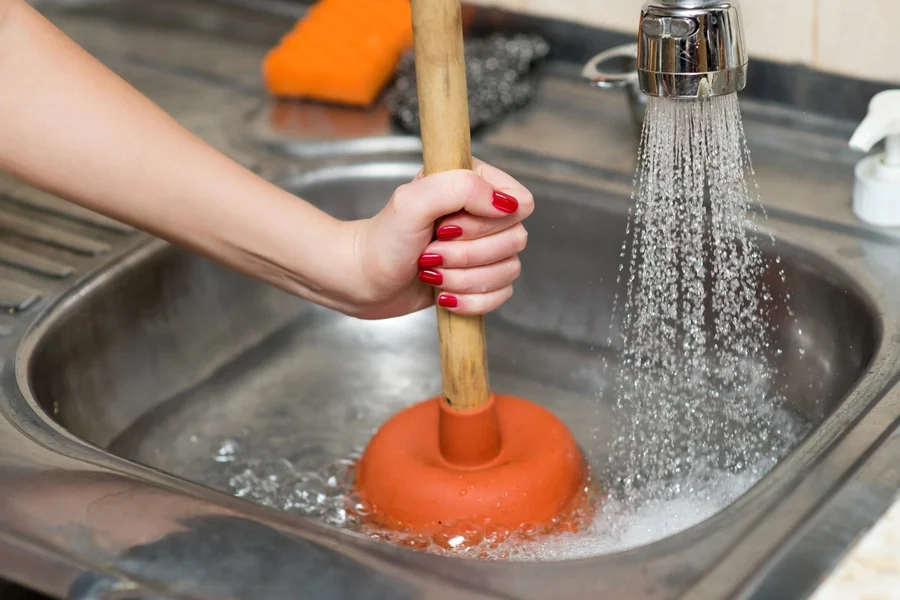In homes where drain clogs are a frequent concern, learning how to prevent them can be important. It can be costly to deal with clogs regularly, especially when professional help is needed or in cases where they may lead to leaks. Instead, homeowners can do the following to help prevent drain clogs in their homes.
Regular maintenance is crucial to avoid frequent drain clogs, but sometimes more extensive solutions are necessary. In cases where persistent issues arise, considering a drainage pipe replacement can be a wise decision. This process involves updating old or damaged pipes, ensuring a smoother flow and reducing the likelihood of future blockages. By addressing the root cause of drainage problems, homeowners can enjoy a more efficient plumbing system and prevent costly repairs down the line. It’s essential to consult with professionals who can assess the situation and recommend the best course of action for your specific needs.
Regular maintenance is crucial in preventing frequent drain clogs, and one often overlooked aspect is the importance of cleanouts. These access points allow for easy inspection and cleaning of your plumbing system, ensuring that any potential blockages can be addressed promptly. To understand more about how cleanouts function and their role in maintaining a healthy drainage system, you can check my source. By incorporating cleanouts into your regular maintenance routine, you can significantly reduce the risk of clogs and keep your plumbing running smoothly. Remember, proactive care is always more effective than reactive solutions when it comes to plumbing issues.
Don’t Pour Grease or Oil Down the Drain
One of the biggest reasons for a clogged drain in the kitchen is because of someone pouring grease or oil down the drain. In these cases, clearing a clogged drain can be more difficult because the grease or oil can solidify and block the drain from working. It’s always better to store the grease or oil until it can be disposed of properly. One way to do this is to let it solidify and then dispose of it in the trash.
Use Screens or Strainers
Screens or strainers should be used in the kitchen sink when rinsing or washing dishes to help catch any large pieces of food or other debris. This helps prevent anything from going down the drain that could cause a clog. Most screens or strainers are one-size-fits-all, but check the size before using to make sure they will catch everything.
Dispose of Food Waste Properly
Food waste should not go down the drain, so it’s important to make sure it’s disposed of properly. Most food waste can be placed in the trash, but those who want to use it for their garden may want to look into composting. The key is to avoid letting any food waste go down the drain, even if it’s just smaller pieces, as they can end up causing a clog.
Use Hair Catchers
In the showers and tubs, the most common reason for a clog is hair build-up. Instead of letting hair build up in the drains, it’s recommended to use hair catchers. These fit in the drain and catch the hair, while allowing soap and water to easily flow through the drain. Once in a while, the hair catcher can be cleaned out and replaced. This helps to significantly reduce the amount of hair that can go down the drain.
Clean the Drains Monthly
It’s a good idea to clean the drains monthly, as this can help prevent build-up that can cause a clog. Homeowners will want to avoid harsh chemicals to clean the drains. Along with being dangerous if used incorrectly, these cleaners can actually damage the drain pipes in the home, leading to more expensive repairs in the long run. Instead, look at natural options to clean the drains regularly and have a professional cleaning done once per year.
Avoid Flushable Wipes
Flushable wipes and other items being flushed are a common reason for clogged toilets. Human waste and toilet paper are the only things that should be flushed. Flushable wipes don’t dissolve as quickly as toilet paper, so they can end up causing a clog. It’s better to avoid flushing them even though they do say they’re flushable.
If you seem to be having frequent drain clogs in your home, there are some changes you can make that will make them less likely to occur. It is a good idea to have a drain inspection done by a professional to see why the clogs are occurring and what can be done to prevent them in the future. Schedule an inspection today to get more help.



